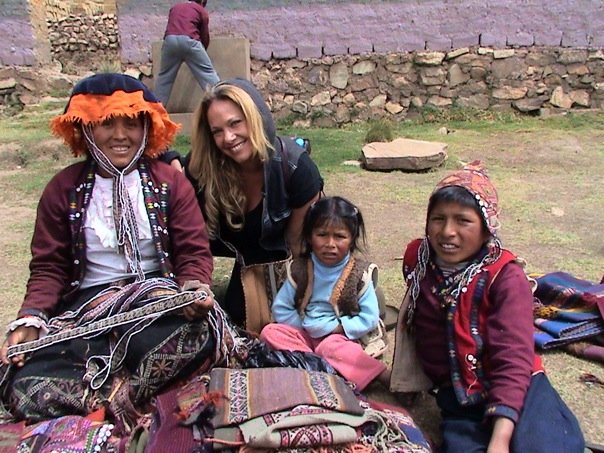5 Tips to be a Socially Responsible Traveler
Recently at San Francisco Travel Massive we celebrated World Tourism Day with a special meet-up and discussion on sustainable tourism. Malia Everette, Founder of Altruvistas and speaker at the event, shared her knowledge about exploring the world more ethically and leaving a positive footprint. Malia is helping to promote transformational philanthropy in the travel industry and believes that taking small steps can make us better travelers. Here are her top 5 tips on how to be a more socially responsible traveler on your next trip.
1. Ask the Question, Who owns you?
It you want to really have your tourism dollars benefit that local or host economy choose accommodations, transportation providers, guides, restaurants and souvenir shops that are locally owned.
2. Give Wisely
Avoid giving gifts or money to children or others asking on the streets. Giving on the streets reproduced the negative behavior. If you are generous of spirit, wonderful! We love those motivated to share. If you are so moved, reach out to local NGO’s or to the directors on local community projects or schools.
3. Keep those 5 Doors of Perception Open
Traveling to a new culture where you don’t speak the language or know the food can be uncomfortable….and what a great opportunity for learning and transforming. Slowly get into your new environment, by really being present the first day or two. When I manage my groups I like to fly in early, sit at a café and observe the flow of people on the streets. How do the women and men relate? How do the young treat their elders? How formal are they when meeting? Watch. Learn. Listen to the tones of the voices when people speak, and the sounds and music if you will in the streets. Smell the restaurants, the stalls, the markets you walk by. Ask “what is that?” Try something new, from a new plate to a new hike or dive! The perceptive and curious walk away most enriched.
4. Respect local customs and laws.
This should really be a given, yet sadly too many travelers don’t respect local norms. Research local customs, religious practices and laws before you go. There are cultural idiosyncrasies everywhere. Spend an hour reading resources from local operators, tourism boards, or other sources. Do your homework. Over the years I have had to learn NOT to hug and kiss people I meet like I normally would, to cover my hair and carry a scarf, not show the soles of my feet to others, to no pat children on the head, to not stick my chopsticks straight up in my rice, and on an on.
5. Remember your Privilege.
This is perhaps one of the most important thing an ethical traveler can do. It can be difficult to recognize our status in comparison to the total global “collective”. If you are traveling remember the economic realities in the destination. For example, in cultures where bargaining is common be respectful and fair. Learn how much time a textile takes to make, a pot to craft, tea to dry then value that so you feel that the seller is not feeling exploited. Remember at times, the reality of material poverty means that someone will sell you something for those few rupees or pesos because they have mouths to feed at home when in fact it is way under what the value it should be.
Here is an example that touched me. I had two travelers extend their trip in Vietnam. They shared later that they felt really bad and exploited when a local boat man charged them double what he was charging others. I could empathize that they felt taken advantage of when a seat should cost a seat. When I asked about this to my local facilitator, she explained that the boats were small and that their backpacks were so big they each took up a seat next to them. From the local’s perspective this was fair as he could not sell the seats. This is an example of how a little awareness and intercultural communication can soothe over a simple misunderstanding.
Malia is an advocate for transformational philanthropy in travel. You can follow her on Twitter.
👋 This article is archived. Take a look at our new website.


